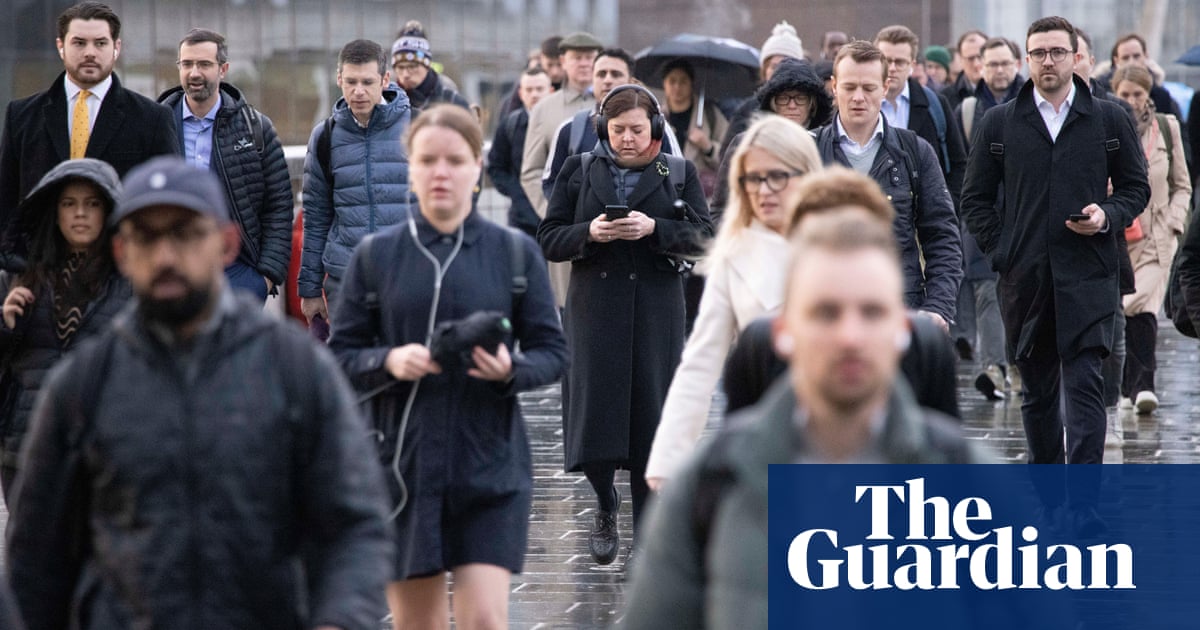
Britain’s recovery from its winter lockdown has slowed sharply as businesses struggle with weakening consumer demand and Covid-related shortages of materials and workers, the latest snapshot of the economy has found.
The closely watched update from IHS Markit and the Cips reported growth at its slowest since March amid wide-ranging staff shortages against a backdrop of rising Covid cases and as thousands of workers isolate owing to the so-called “pingdemic”. The survey also highlighted a new mood of caution among the public triggered by the rapidly rising infection rates.
The survey – conducted in the 10-day period up to 21 July – showed the economy still expanding but the markedly slower rate of growth prompted immediate concerns that the recovery was stalling.
Chris Williamson, the chief business economist at IHS Markit, said: “July saw the UK economy’s recent growth spurt stifled by the rising wave of virus infections, which subdued customer demand, disrupted supply chains and caused widespread staff shortages, and also cast a darkening shadow over the outlook.”
The IHS Markit/Cips purchasing managers’ index dropped from 62.2 to 57.7 in July, with falls in the manufacturing and services sectors. Any reading above 50 indicates expansion.
The government had hoped that the lifting of restrictions on 19 July would provide a boost to the economy but Williamson said this now looked unlikely.
“Although the July flash survey only covered three days of the full easing of Covid restrictions, any imminent re-acceleration of growth in August looks unlikely due to a steep slowing in overall new order growth recorded during July,” he said.
“Concerns over the Delta variant have meanwhile overshadowed the passing of ‘freedom day’, and were a key factor alongside Brexit and rising costs behind a sharp slide in business expectations for the year ahead, which slumped to the lowest since last October.”
The PMI reported the most rapid increase in average costs for businesses in the survey’s 23-year-history, driven by a steep rise in the service sector linked to wage inflation, higher transport bills and price increases by suppliers. Manufacturers also recorded another rapid upturn in purchasing, although the rate of inflation eased from June’s all-time high.
The eurozone PMI showed a different picture to the UK, with business activity rising to a 21-year-high.
The release of the UK PMI followed the government’s decision to allow groups of key workers to be allowed to avoid self-isolation after concerns that the “pingdemic” could lead to food shortages and disruption of the transport and energy networks. More than 600,000 people were sent self-isolation alerts in the past week.
Official figures for retail sales showed a 0.5% jump in June – a bigger increase than analysts had expected – but the figures were distorted by a rise in spending on food, thought to be linked to football fans watching Euro 2020 on TV.
Williamson said transport, hospitality and other consumer-facing services had been the hardest hit by the slowdown.
“The PMI indicates that GDP growth will likely have slowed in the third quarter, after having rebounded sharply in the second quarter,” he added.
Martin Beck, a senior economic adviser to the EY Item Club, said: “After the relaxation of Covid-19 restrictions triggered an improvement in the PMIs earlier this year, a fall back in June’s indices pointed to the initial impetus from reopening fading. This seems to have continued in July.”
Samuel Tombs, the chief UK economist at Pantheon Macroeconomics, said: “The sharp fall in July’s composite PMI provides further evidence that the economic recovery is faltering. Granted, the composite PMI still is one of the more upbeat indicators; it remained well above its 23-year average, 53.7, so in theory, it points to a further solid monthly increase in GDP. The PMI, however, is heavily influenced by sentiment, so its direction often is more important than its level. Most other indicators suggest that the recovery has stalled, temporarily, due to the third wave of Covid-19 infections.”












